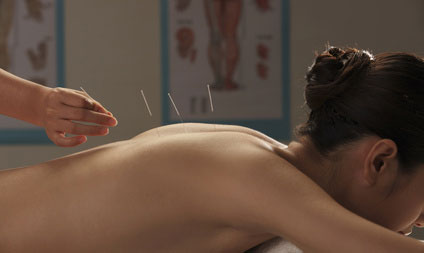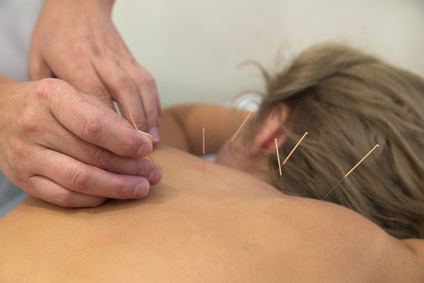Acupuncture Treatment
Overview

Most patients try acupuncture as a last resort when their doctors have declared their discomfort unfixable or psychosomatic, or prescription drugs have caused collateral damage. Some give it a try when their insurance plans cover a certain number of visits.
If you still haven’t tried acupuncture and are curious whether it’s worth your time and money, here are five encouraging reasons to give it a chance:
1. It's personalized healthcare. No two acupuncture patients receive the same treatment for the same disease or discomfort. Acupuncturists treat patients, not diseases. They are trained to take in every detail of you, from the sound of your voice to the quality of your skin to the sparkle in your eyes. They care about your whole story, past and present. They see your body as a network of interdependent parts: muscle, bone, fascia, organs, blood and body fluids, as well as more subtle layers like meridians and qi. They see what is deficient and what is stuck, mentally as well as physically, and make adjustments like a traffic cop, facilitating the body’s own healing ability.
2. It’s nothing to be afraid of. Sure, you may feel the needles and their immediate effects, but you needn’t be anxious. If you're suffering aches and pains on a daily basis, that chronic pain far outweighs any momentary mini pinch of a hair-thin sterile acupuncture needle.
3. It can have many positive effects. You may go to acupuncture to cure your neck and shoulder pain, and find that the pain diminishes. Meanwhile, your stress level, sleep quality, digestion, and overall mood improve too.
4. It gets to the root. Acupuncture treatments are deeply healing because they focus not only on the patient’s current condition, but investigate why their symptoms are manifesting and aim to treat the underlying root cause.
5. It works. Acupuncture has been around since before recorded history. The earliest written record comes from a few hundred years before the common era. If it didn’t work, it certainly wouldn’t have lasted thousands of years and spread through hundreds of Asian medical lineages.
What conditions can acupuncture help with?

Acupuncture has shown to be helpful with a long list of conditions so here are some of the more common ones: adult post-operative and chemotherapy nausea and vomiting, post-operative dental pain, addiction, stroke rehabilitation, headache, menstrual cramps, tennis elbow, fibromyalgia, myofascial pain, osteoarthritis, low back pain, carpal tunnel syndrome, and asthma where acupuncture may be useful as an adjunct treatment or an acceptable alternative or be included in a comprehensive management program.
Does Acupuncture Hurt?

A common assumption about acupuncture is that it hurts. You are, after all, getting stuck with needles. Fear of pain from acupuncture needles is one of the most common reasons people forgo acupuncture. Often to the astonishment of those who take the plunge, acupuncture usually does not hurt. No pain, though, does not mean no sensation. There are instances where acupuncture needles are inserted without the recipient feeling a thing—this is especially common with styles of acupuncture that utilize extra thin needles, such as Japanese acupuncture. However, most of the time acupuncture produces some kind of sensation at the site of needling. This moment, when a person literally feels an acupuncture point working, is known in acupuncture lingo as de qi. It is a good thing. Another way of thinking about de qi is that the acupuncture needle has accessed the energetic material that it needs to produce movement throughout the body. When the point is activated, change is initiated.
